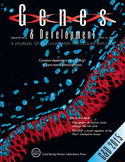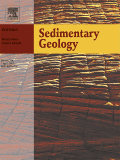 This week at Retraction Watch featured retractions by a high-profile cancer researcher, and a loss in court for PubPeer. Here’s what was happening elsewhere: Continue reading Weekend reads: Widespread p-hacking; sexism in science (again); retraction totals
This week at Retraction Watch featured retractions by a high-profile cancer researcher, and a loss in court for PubPeer. Here’s what was happening elsewhere: Continue reading Weekend reads: Widespread p-hacking; sexism in science (again); retraction totals
University finds Dutch economist guilty of misconduct; he responds

The Free University of Amsterdam found Peter Nijkamp, one of the nation’s leading economists who has lost several papers for self-plagiarism, has been found guilty of “questionable research practices,” according to the newly released results of an investigation.
Nijkamp has published a strongly worded criticism of the report (at least according to Google Translate, since his writing is in Dutch).
According to independent student publication Ad Valvas, the commission, led by Jaap Zwemmer, a professor emeritus at the University of Amsterdam, found Nijkamp was guilty of “questionable research practices.” University rector Frank van der Duyn Schouten, on the other hand, said in an official statement that there was “insufficient basis” to claim questionable research practices for each article.
Continue reading University finds Dutch economist guilty of misconduct; he responds
Judge tells PubPeer to hand over information about anonymous commenter; site weighing “options”
 A Michigan judge has ruled against a motion by PubPeer to protect the identity of an anonymous commenter, and asked the post-publication peer review site to give her any information they have about the commenter.
A Michigan judge has ruled against a motion by PubPeer to protect the identity of an anonymous commenter, and asked the post-publication peer review site to give her any information they have about the commenter.
According to one of the lawyers present, the site said in court the only identifying information it has is an I.P. address. The judge will decide March 24 (Tuesday) whether or not to share the I.P. address with the lawyer representing a cancer researcher who has demanded PubPeer release information about those who have written anonymously about his work.
On March 5, PubPeer had a better day in court, when the judge agreed to allow the site to protect the identities of its other anonymous commenters. For the remaining commenter, the judge asked to hold another hearing yesterday.
During that meeting, the judge ordered PubPeer to produce “identifying information for that commenter,” said Alexander Abdo of the American Civil Liberties Union, who helped represent PubPeer in this case: Continue reading Judge tells PubPeer to hand over information about anonymous commenter; site weighing “options”
Two more retractions appear for prominent MIT cancer researcher Robert Weinberg
 Two identical retraction notices have popped up for MIT professor Robert Weinberg, a highly-cited cancer researcher who had a retraction and a correction in 2013, both in Cancer Cell.
Two identical retraction notices have popped up for MIT professor Robert Weinberg, a highly-cited cancer researcher who had a retraction and a correction in 2013, both in Cancer Cell.
These two new retractions, in Genes and Development, stem directly from another paper by Weinberg and colleagues in Cell that will apparently be retracted, as the “same analytical methodology was used,” according to the notices [see bottom of the post for an update].
Weinberg is highly regarded, and at least 20 of his papers have been cited over a thousand times.
First author Scott Valastyan was a promising postdoc at the time of the paper’s publication. He was a 2011 Runyon Fellow at Harvard, a three-year, $156,000 award for outstanding cancer postdocs. He doesn’t seem to have published anything since 2012, though he is listed as a joint inventor with Weinberg on patents filed in 2009 and 2014.
Here are the notices for “Concomitant suppression of three target genes can explain the impact of a microRNA on metastasis” (cited 73 times, according to Thomson Scientific’s Web of Knowledge) and “Activation of miR-31 function in already-established metastases elicits metastatic regression” (cited 54 times), both paywalled: Continue reading Two more retractions appear for prominent MIT cancer researcher Robert Weinberg
Troubled article ranking business schools earns expression of concern
 An article that ranked University of Missouri-Kansas City number one in an area of business school training is set to receive an expression of concern. The move follows months of questions over the ranking’s legitimacy, following revelations such as a relationship between the authors and both the school and its top ranked researcher in the field.
An article that ranked University of Missouri-Kansas City number one in an area of business school training is set to receive an expression of concern. The move follows months of questions over the ranking’s legitimacy, following revelations such as a relationship between the authors and both the school and its top ranked researcher in the field.
In 2011, the business world got a bit of a surprise: In the field of innovation management, the study of how entrepreneurs convert good ideas into profit, the number one school – according to an article in the Journal of Product Innovation Management — was UMKC. Not Harvard, not Stanford, not any other institution that normally tops these types of rankings. UMKC’s Henry W. Bloch School of Management was also home to the number one researcher in that field, Michael Song.
The school, of course, was elated, immediately issuing a press release titled “UMKC Ranked No. 1 in the World.”
But after publication, a UMKC professor raised concerns about the paper’s methodology. An investigation by the Kansas City Star uncovered some issues:
Continue reading Troubled article ranking business schools earns expression of concern
Sticky situation: Paper using honey for healing pulled over data issues

A paper on dressing wounds with honey has been retracted after the journal realized that an outlier patient was throwing off the data analysis.
Honey has been used for millennia as an antimicrobial wound dressing. Doctors can even buy sterile preparations of the sweetener. But the evidence that honey is better than other wound dressings is still inconclusive.
According to the retracted paper, published in International Wound Journal in 2008, Manuka honey has an acidic pH which helps reduce the alkaline environment of chronic woulds. Indeed, the authors found that Manuka honey dressings lowered wound pH and reduced wound size.
Sadly, the paper was pulled in 2014, after someone realized one patient had a particularly large wound that was throwing off statistics. The injury was 61 cm^2 at the beginning of the study, while the others ranged from .9 to 22 cm^2. After removing that patient from the analysis, the results no longer held up.
Continue reading Sticky situation: Paper using honey for healing pulled over data issues
So you want to be a whistleblower? A lawyer explains the process
We are pleased to present the first in a series of articles by John R. Thomas, Jr., a lawyer at Gentry Locke [Editor’s note, 3/26/19: He has since moved to Haley, Hafemann, Magee and Thomas] who represents whistleblowers in a variety of False Claims Act cases. He writes about how whistleblowers can do the right thing and protect themselves in the process.

As readers of Retraction Watch are well aware, scientific misconduct is a problem for a number of reasons. Science builds upon itself; unfounded scientific results lead to wasted research efforts, ineffective medical therapies, and faulty public policy conclusions. Even one fraudulent paper can have profound effects, such as fueling an anti-vaccine movement.
Research misconduct also erodes public trust in science and endangers ongoing public funding of scientific research. Following the recent discovery of fabricated AIDS research at Iowa State University, Senator Grassley addressed the issue before the U.S. Senate:
Continue reading So you want to be a whistleblower? A lawyer explains the process
Castle made of sand: Self-plagiarism washes away paper on dune particles
 A group of geologists in China have lost their paper on the aerodynamics of sand particles because the article was mashed together from previous publications.
A group of geologists in China have lost their paper on the aerodynamics of sand particles because the article was mashed together from previous publications.
The article, “The influence of sand diameter and wind velocity on sand particle lift-off and incident angles in the windblown sand flux,” appeared in the May 2013 issue of Sedimentary Geology. It was written by a team from the Key Laboratory of Mechanics on Western Disaster and Environment at Lanzhou University.
Here’s the notice: Continue reading Castle made of sand: Self-plagiarism washes away paper on dune particles
Cell biologists in South Korea retract two papers
 A group of researchers at two universities in South Korea have retracted two cell biology papers featuring retinoic acid.
A group of researchers at two universities in South Korea have retracted two cell biology papers featuring retinoic acid.
The most recent retraction appears in the Journal of Biological Chemistry. Although, in typical JBC fashion, the reason for it is anyone’s guess.
Here’s the unhelpful notice for “ASXL1 represses retinoic acid receptor-mediated transcription through associating with HP1 and LSD1:” Continue reading Cell biologists in South Korea retract two papers
WordPress parent company wins suit fighting false DMCA copyright claims
 In late 2013, we filed suit along with Automattic, the parent company of our blogging platform WordPress, against someone allegedly at a news service in India who falsely claimed that we had violated its copyright. Last week, we were pleased to learn Automattic won a similar case against a group that tried to censor another blogger.
In late 2013, we filed suit along with Automattic, the parent company of our blogging platform WordPress, against someone allegedly at a news service in India who falsely claimed that we had violated its copyright. Last week, we were pleased to learn Automattic won a similar case against a group that tried to censor another blogger.
Both suits were designed to draw attention to people who misuse the Digital Millennium Copyright Act (DMCA) as an excuse to censor information they don’t like. Last summer, we withdrew our suit, because the defendant had “neither served an answer nor a motion for summary judgment, and indeed has not appeared,” according to our dismissal filing. But by then the issue had made its way to Capitol Hill, where Automattic general counsel Paul Sieminski used our case as an example of DMCA abuse in testimony last March.
While we of course would have liked to have continued pursuing the case against Narendra Chatwal at the so-called News Bullet in Utter Pradesh, we were very pleased to hear last week that Automattic had prevailed in a second, similar case they filed at the same time as ours. In this case, blogger Oliver Hotham was targeted by a group championing the rights of heterosexuals after he posted excerpts from a press release the group sent him along with some commentary; in response, “Straight Pride UK” invoked the DMCA to force Hotham to take down the post. As Ars Technica reported: Continue reading WordPress parent company wins suit fighting false DMCA copyright claims